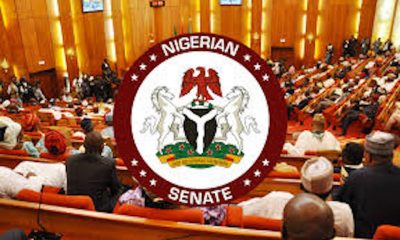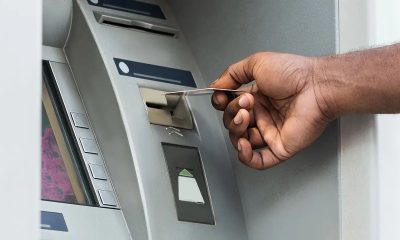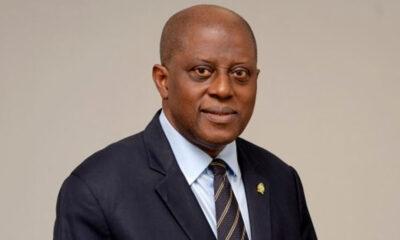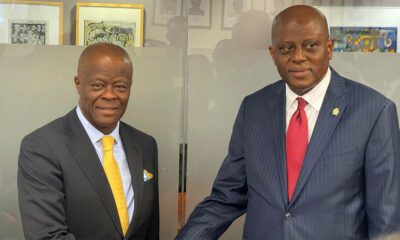News
Naira crisis: How Cardoso fumbled at Senate’s meeting – US-based Professor
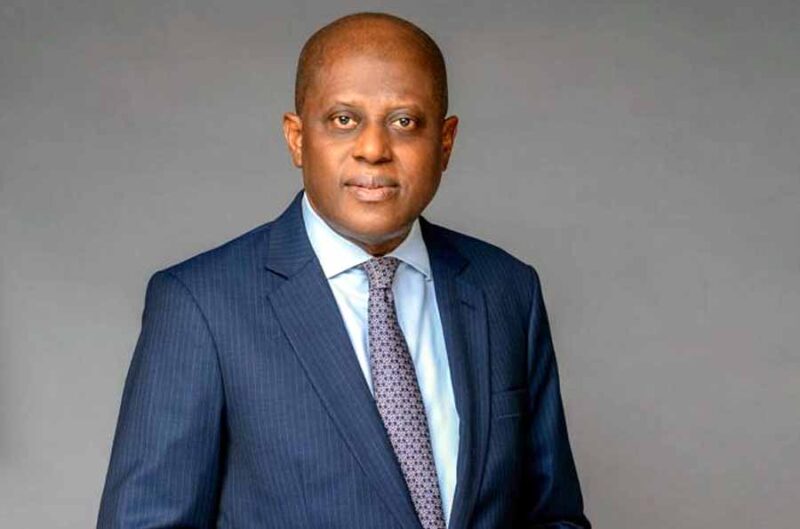
Naira crisis : How Cardoso fumbled at Senate’s meeting – US-based Professor
A United States-based Professor of journalism and emerging media, Farooq Kperogi, as lashed out at the unconvincing ‘display’ by the Central Bank of Nigeria (CBN) governor, Olayemi Cardoso, during an interactive session with a Senate committee on Friday.
Newstrends reports that Cardoso had on Friday appeared before a Senate Committee to explain the reasons for the free fall of naira and other economic challenges in the country that have prompted a serious hardship in Nigeria.
But describing Cardoso’s explanation as empty, Kperogi, who is a Professor at Keenesaw State University, said the CBN governor is shaping up to be the most inept and least intellectually prepared for his job.
“Is Olayemi Cardoso Nigeria’s Worst CBN Governor?
I know awfully little about current CBN governor Olayemi Cardoso. I’d just assumed that to deserve being appointed the governor of the CBN, he must at least be minimally competent and conversant with economic policies.
“But he is shaping up to be the most inept and least intellectually prepared for his job. It isn’t just that he is supervising the free fall of the naira through inconsistent policies, he also doesn’t seem to be able to explain to anyone what exactly he is doing, indicating he doesn’t know what he is doing.
READ ALSO:
- Emefiele’s wife declared wanted over alleged fraud
- Tinubu signs electricity bill into law to address host community concerns
- Bus driver set traffic official on fire in Edo
“On Friday, I watched Cardoso’s meeting with the senate where he couldn’t answer questions from senators without reading from a prepared script. “I object to this!” a senator yelled in response to Cardoso’s lifeless regurgitation of a prepared speech he obviously didn’t understand. “Let him go back and answer the question!”
“Anyone who can’t respond to a question without reading a prepared text obviously has no understanding of what he is talking about. Albert Einstein famously said, “if you can’t explain it simply then you don’t understand it well enough.” Cardoso’s case is even worse. He can’t explain it at all. It explains why the economy is in a mess and the naira is in a worse shape than it has ever been.
” Cardoso’s most important qualification for the job appears to be that he was Economic Planning and Budget commissioner in Lagos when Tinubu was governor, but the job seems to be above his intellectual and experiential paygrade.
” I know of no CBN governor in my lifetime (until Cardoso) who couldn’t articulate economic policies effortlessly. Even Godwin Emefiele had no difficulty defending his policies. You may question his competence or disagree with his policies, but he could at least clearly formulate thoughts about what he was doing. Cardoso gives me the jitters. Nigeria is in way worse trouble than it realizes with an airhead like that as CBN governor, ” Kperogi said in his weekly newspaper column on Saturday.
Naira crisis : How Cardoso fumbled at Senate’s meeting – US-based Professor
News
Why governors’ forum is silent on Rivers emergency, by DG
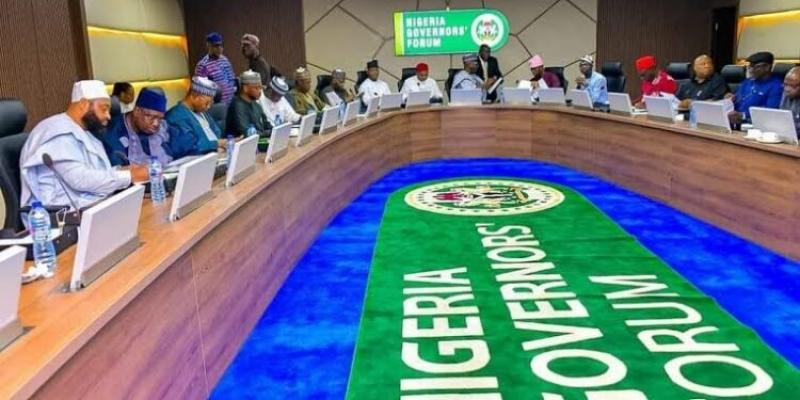
Why governors’ forum is silent on Rivers emergency, by DG
The Nigeria Governors’ Forum (NGF) yesterday attributed its neutral position on the recent declaration of a state of emergency in Rivers State to the need to steer clear of taking positions that may alienate members with varying political interests.
Taking positions on contentious partisan issues, the NGF said, would not augur well for it, especially in view of its past experience in fundamental division.
Notwithstanding, the declaration of the state of emergency by President Bola Tinubu yesterday generated more kudos and knocks from across the country.
Special Adviser to the President on Senate Matters, Senator Basheer Lado, said the action of the president was meant to ensure protection of lives and restoration of law and order in the state, while the President’s Special Adviser on Media and Public Communications, Sunday Dare, said his principal was required to “avert needless harm and destruction .”
National Publicity Secretary of the ruling All Progressives Congress (APC), Felix Morka, said Tinubu, by his action, cleared what had manifested as a constitutional crisis in Rivers state.
But former President Goodluck Jonathan saw it from a different perspective.
READ ALSO:
- Senate didn’t get 2\3 majority for Tinubu emergency rule in Rivers –Tambuwal
- FG destroys another 200 containers of expired drugs
- Rivers court bars woman from answering ex-husband’s name
He described “abuse of office and power by the three arms of government in the country“ as a dent on Nigeria’s image.
The NGF, in a statement by its Director General Abdulateef Shittu, said it is essentially “an umbrella body for sub-national governments to promote unified policy positions and collaborate with relevant stakeholders in pursuit of sustainable socio-economic growth and the well-being of the people.”
It added: “As a technical and policy hub comprising governors elected on different platforms, the body elects to steer clear of taking positions that may alienate members with varying political interests.
“In whatever language it is written, taking positions on contentious partisan issues would mean a poor sense of history — just a few years after the forum survived a fundamental division following political differences among its members.
“Regardless, the Forum is reputed for its bold positions on governance and general policy matters of profound consequences, such as wages, taxes, education and universal healthcare, among others.”
It asked for “the understanding of the public and the media, confident that appropriate platforms and crisis management mechanisms would take care of any such issues.”
Why governors’ forum is silent on Rivers emergency, by DG
News
Rivers: Tinubu acted to save state, economy, says Karimi
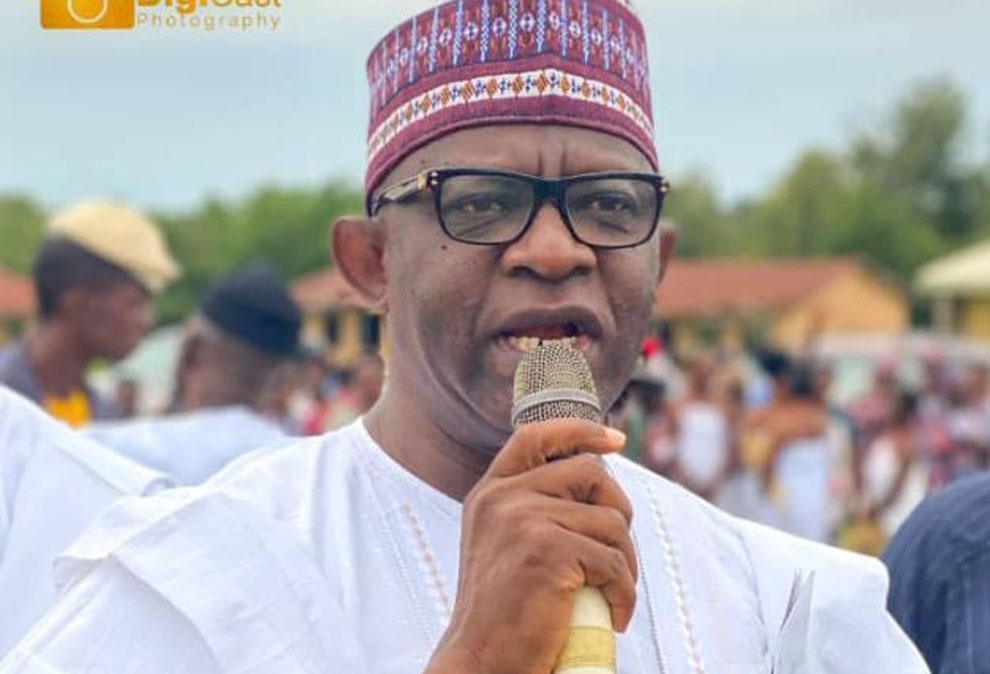
Rivers: Tinubu acted to save state, economy, says Karimi
Chairman of the Senate Services Sunday Karimi has hailed President Bola Tinubu for the decision to declare a state of emergency in Rivers State.
He told reporters on Friday in Abuja that the President acted in the best interest of the State and Nigeria, having taken his decision in compliance with the Constitution.
“No President or government worth a name, will fold its arms and watch a political situation deteriorate to what we saw unfolding in Rivers State.
“We saw that bombing of pipelines had begun, and the security situation was getting worse with the tension everywhere”, Karimi stated.
Karimi, who represents Kogi-West on the ticket of the All Progressives Congress (APC), recalled the “fatherly role” Tinubu had played in the crisis since 2023 in a bid to get the Minister of the Federal Capital Territory (FCT), Nyesom Wike, and suspended Governor Siminalayi Fubara to reach an understanding, to no avail.
He explained: “We were all here in 2023 when Mr President called that truce meeting at the Aso Rock Villa. There was the eight-point agenda for settlement reached between the factions.
“When Nigerians expected that progress should be made to achieve peace, things started deteriorating considerably to a point where the governor demolished the House of Assembly building and administered the state with only three legislators.”
READ ALSO:
- Oluwo accuses Ooni of plotting to dethrone him
- Natasha: Court blocks recall attempt, stops INEC
- US ends legal status for 500,000 immigrants
Karimi observed that with the recent judgment of the Supreme Court, which gave the upper hand to the 27 lawmakers loyal to the camp of the FCT Minister, matters merely got worse in the State as the lawmakers were set to impeach the Governor.
“What did you expect would be the implications? There would have been more destruction, killings and economic losses for the country.
“With the bombings that had already started, it was a matter of time before the whole state would be engulfed in flames. No responsible President would sit, arms folded, and allow that to happen “ he added.
The senator further argued that it took “painstaking efforts” by the administration to raise daily crude oil production to around 1,800 barrels, noting that Nigeria’s economy was already “witnessing a rebound under the renewed hope projects of the government.”
“Allowing the situation in Rivers to get worse before he would act, wouldn’t have helped the state or Nigeria as a country in any way.
“Mr. President intervened at the right time, and his actions are covered by law,” he said.
Karimi also spoke on the emergency declaration in Borno, Yobe, Adamawa and a couple of other states by former President Goodluck Jonathan without removing the Governors from office or suspending the state assemblies.
According to him, the case with those States was not generated by political crises but rather security concerns.
“So, I will advise those comparing the two scenarios to remember that one was purely about security threats resulting from the insurgency caused by Boko Haram, while that of Rivers is clearly political.
“It was the proper thing to do to suspend the political actors in the two factions to allow for tensions to diffuse. Nigerians should appreciate the President for the action he has taken so far,” he stated.
Sen. Karimi also noted that there was no cause for alarm as the National Assembly had indicated that the emergency rule could be reviewed as soon as there were signs that things could quickly normalise in Rivers State.
Rivers: Tinubu acted to save state, economy, says Karimi
News
Just in: Tinubu swears in Rivers Sole Administrator Ibas
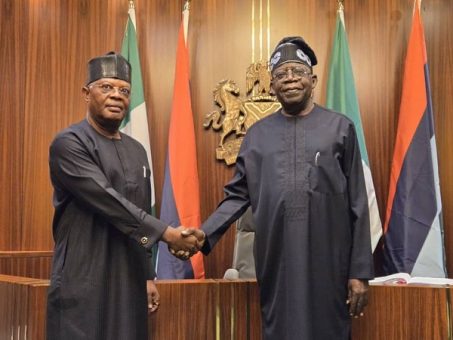
Just in: Tinubu swears in Rivers Sole Administrator Ibok-ete Ibas
President Bola Tinubu has sworn in Vice Vice Admiral Ibok-ete Ibas (Retd.) as the Sole Administrator of Rivers State.
The administrator was sworn in on Wednesday after a short meeting with the President.
Tinubu announced the appointment of the retired naval chief at a nationwide broadcast on Tuesday, when he declared a state of emergency in Rivers State and suspended Governor Siminalayi Fubara, Deputy Governor, Ngozi Odu, and the state House of Assembly members.
The President said his decision was based on Section 305 of the 1999 Constitution, saying he could not continue to watch the political situation in Rivers escalate without taking concrete action.
The suspension of Fubara and other elected representatives has been rejected and condemned by many eminent Nigerians, legal luminaries, groups such as Atiku Abubakar, Peter Obi, Femi Falana, the Labour Party (LP), the Peoples Democratic Party (PDP) and the Nigerian Bar Association.
However, the emergency rule has been praised by the pro-Nyesom Wike Assembly led by Martins Amaewhule, accusing Fubara of contravening the Supreme Court ruling on the political situation in the state.
Ibas was the Chief of Naval Staff from 2015 to 2021.
He is from Cross River State where he had his early education.
The new sole administrator went to the Nigerian Defence Academy in 1979 from where he proceeded to have a successful career in the Navy, rising through the ranks to the very top.
He is a member of the Nigerian Institute of International Affairs (NIIA) and the Nigerian Institute of Management.
President Muhammadu Buhari who appointed him as Chief of Naval Staff conferred him with the National Honour of Commander of the Federal Republic (CFR) in 2022.
-

 metro2 days ago
metro2 days ago‘We’re not hiring,’ NNPC denies viral recruitment adverts
-

 metro2 days ago
metro2 days agoNatasha: Court blocks recall attempt, stops INEC
-
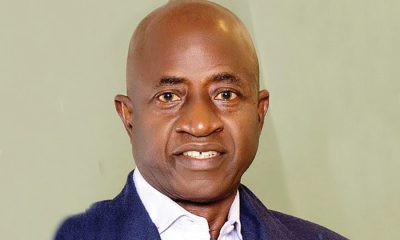
 Sports2 days ago
Sports2 days agoOdegbami speaks on Osimhen breaking his 44-year goals record
-
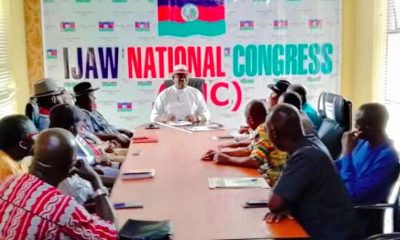
 metro3 days ago
metro3 days agoMore trouble brews in Rivers as Ijaw congress considers self-determination option
-

 Entertainment2 days ago
Entertainment2 days agoI didn’t snatch Asake’s mother from her husband -Musibau Alani
-

 Sports2 days ago
Sports2 days ago2026 WCQ: Super Eagles move up to third place with 2-0 win in Rwanda
-

 metro2 days ago
metro2 days agoOluwo accuses Ooni of plotting to dethrone him
-

 metro2 days ago
metro2 days agoBoko Haram attacks military base in Adamawa

